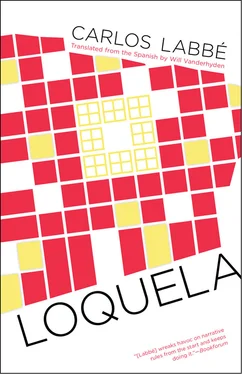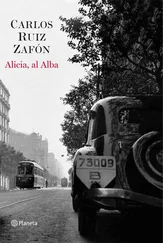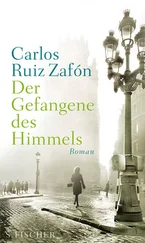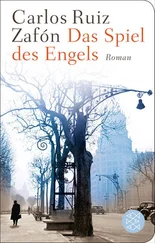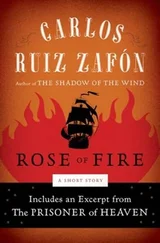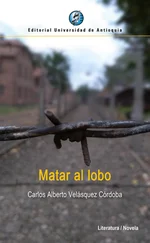October 19 th
This is the first time I am writing here, at this desk that I’ve had since I was little and that now, in the light coming through the window, looks different. Getting used to living in a house — even though this is also a studio and the smell of Alicia’s paintings impregnates the walls — is also new to me. It’s a freedom, when all is said and done, to live with my cousin. I know now what it means to live alone.
Things are happening.
I’ve been imagining a detective story. It occurred to me that I could write a novel of innumerable pages about a girl who, frightened because a man is apparently following her, contacts a detective to help her. She and the detective become friends, they flirt. He ends up obsessed with her and follows her everywhere. I want to sit down every afternoon, take advantage of the dead hours of summer to write. On one of these afternoons the inspiration comes to me. Until I was twelve years old, I invented fairytales and succeeded in getting all my friends to fall asleep when we camped out in the yard at one of our houses. I think that little Elisa would love to see me plot something out and then, at first, refuse to show it to her — she loves it when I’m mysterious. That story of the girl who gets stalked by the same guy she is paying to protect her has been coming back to me ever since my cousin told it at our uncle and aunt’s country house last Sunday. Elisa won’t go to family gatherings with me, she says that my relatives talk too much and she gets tired of them asking about her family, of so many little kids relentlessly running around, crying, shrieking. She says any day now some kid is going to fall in the pool and that no one will notice, my uncles cracking up at their crude double entendres, my aunts talking just to talk, and my grandmother sitting in the center, pretending to listen, like she cares about the grades some grandkid got in school, the clothes someone or other bought, the kind words of some relative’s loving girlfriend. At least Alicia was always there in some corner, laughing like the others, but laughing to herself, remembering when we saw ghosts roaming the corridors of that immense mansion in Rancagua, or when an older cousin convinced us that our crazed and sick great-grandmother was locked in the forbidden room, the room on the other side of my uncle and aunt’s bedroom. And the enormous trunk hidden away in the cellar, what’s in there? we would ask. That Sunday my cousin Alicia and I talked almost all afternoon. I told her I wanted to live alone that next year and she invited me to come check out her home-studio on Calle Bustamente, she could rent me a room there. And that’s where I’m writing this now. She also told me about her friend Violeta. Bored of living in the cesspool of Santiago (my cousin’s words), she moved to another city — I can’t remember which one — for a couple years. She met a guy there, a classmate at the university, with whom she went out and then broke up. The guy was unhinged and wouldn’t leave her alone, calling her on the phone every night, following her through the streets, buzzing the intercom at her apartment and not saying anything when she answered. One day, desperate, it occurred to her to ask a professor friend from the university for help, and he managed to get the guy expelled, but that was worse: one time the guy, furious, almost hit her with his car, and another time he almost pushed her into the city’s river. She loved where she was living, but in the end Violeta had to go back to Santiago. What she doesn’t know is if the guy followed her here or if she just had the terrible luck of encountering another psychopath. Alicia was very worried when she told me this, her friend is receiving letters that are making her paranoid, lately she thinks she sees that guy on every corner. There aren’t many girls like Violeta, according to Alicia, and that’s why men go crazy for her. This is a story I’d love to be able to write.
But something’s happening. I got home in the afternoon and there was little Elisa, napping on the sofa, a serious expression on her face. I wasn’t expecting her, I thought she was going to the beach for the weekend; she’d decided to stay at the last minute, she said. I said great and gave her a quick hug without squeezing her, just the way she likes, and yet she remained silent, indifferent. I gave her a bunch of quick kisses, I sat calmly beside her without touching her, I gave her names (she always likes that): My Little Lady, The Little One, The One with the Waist, The One with Hair in Her Eyes, The One with the Lips. She told me to be quiet. She stood up suddenly and went over to the little table by the phone to pick up some pencil drawings that were sitting there. She had to go, she apologized, she came back to the couch where I was lying with open arms. She threw a heavy white envelope at my head. I read the name of the sender: Violeta Drago. Elisa asked me what this was all about. Someone had dropped off a letter from this Violeta, who was she and why was she sending me little messages. I asked if she’d seen the person who delivered it, she said no, then I went up to her and smiled calmly, there was no reason to get upset and confuse things. I told her not to be silly, that she was being paranoid: Violeta Drago was just one of my cousin’s friends.
Later we drank tea with Alicia and a friend who’d come to visit her. Afterwards we were watching a movie, lying down, and Elisa decided she wanted to spend the night at home, alone, so I took her. I don’t know why I’m so tired, and I can’t go back to bed either. It’s cold inside this house, as if it weren’t summer. I know that if I go to sleep, I’ll have that same nightmare, the one that won’t leave me alone, that nightmare that seems to come with this house: I open my eyes and look out of a curtainless window that turns into the window of an intercity bus. The landscapes pass rapidly before my eyes, the hills expand until they swallow the fields, and the bus begins to descend. Now we are arriving at a port, beyond you can see lights, many lights, and the sea.

November 22 nd
(I find myself sitting in class. My eyes, my tongue, my temples will burst if I go on; it’s as if I were insisting on leaving behind the here and now of my Latin American Literature class, at 11:45 in the morning, in the second to last seat in the final row on the right-hand side, to transform myself into the guy who complains about his professor, who meets his people, reads his pages, walks in his footsteps, kisses his girl; to transform myself into the girl who’s sitting beside me, be made of her long bones, adopt her cautious stride, smell her cleanness on my skin, feel how that black dress falls across my body and how my feet sustain the weight of those enormous boots, to touch with those fingers my nearly nonexistent nose, the way she looks at me now and smiles for no reason yet with beguiling kindness, to see out of her bright eyes, to feel the spring air on my face coming in through the window, to be a woman and respond with a kind expression that I’m unable to describe when people say Alicia. Transform myself into someone else who’s watching us from the opposite side of the room, who sees us flirting and imagines that we love each other, that we have loved each other, and that we will love each other right now as she rests her head on my shoulder. To fixate, from the other side of the room, on my imperturbable expression, see that Alicia looks up and notices, for the first time, the movement of my pen across the page, and how her attention shifts to me until her face is transfigured by terror when she reads what I’m writing in this moment: “see that Alicia looks up and notices, for the first time, the movement of my pen across the page, and how her attention shifts to me until her face is transfigured by terror when she reads what I’m writing in this moment: see that Alicia looks up and notices, for the first time, the movement of my pen across the page, and how her attention shifts to me until her face is transfigured by terror when she reads what I’m writing in this moment.” I keep writing and she tries to stop me by reading to the end of the paragraph before I get there, when the page is still blank; I battle against this interference and keep on writing while, in the room’s other corner, I see that the girl in the last row on the right-hand side is looking anxiously at the notebook of the guy sitting next to her, that she smiles a smile full of mockery and then starts laughing sonorously, the burst of her husky voice interrupting the professor; she starts to read aloud, almost yelling, what it says in the notebook of her classmate, who [the scene is absurd] doesn’t seem to notice and keeps on writing. The other students start chuckling when they hear the albino girl read that embarrassing text, the emphasis she puts on certain words, and the guy starts to sweat. Alicia is tearing me apart, the delusion of suspending her movement on this page with my writing turns into simple rambling when my words become public, when what I write is a spectacle for other people who don’t know who we are and that this notebook is full of personal things, when they scorn what I say [horror], fixing their ears and filthy eyes on Alicia’s chapped lips, which could never utter anything hurtful.
Читать дальше
